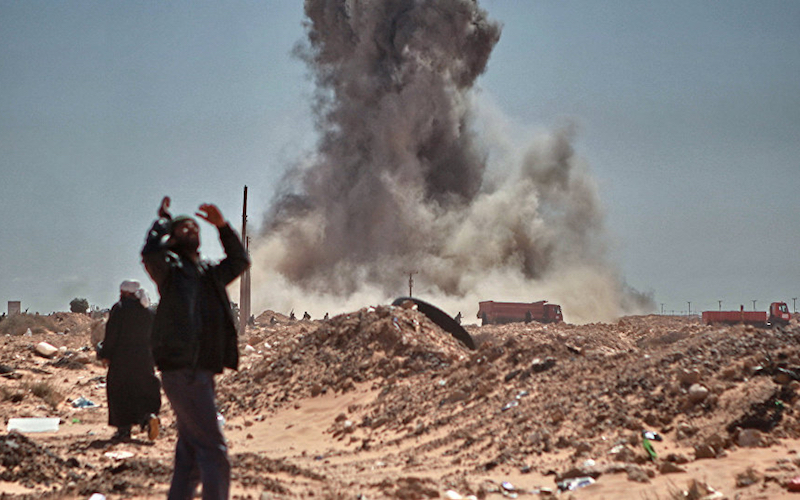
Will Trump and Putin See Eye-to-Eye on Libya?
As a result of Russia’s decisive military intervention in the Syrian crisis, the Kremlin is now pursuing an increasingly influential role across the Arab world. It is now eyeing Libya as well. Although Russia will not likely invest as much of its military and political capital there as it did in Syria, Libya is set up to play an important role in Russian foreign policy this year due to Moscow’s vested geopolitical, security, and energy interests in North Africa.
From the Russian perspective, the NATO/GCC military intervention against Muammar Gaddafi—waged under the UN’s Responsibility to Protect doctrine—was about settling old scores and pursuing raw geopolitical interests. By not using its veto authority and abstaining in UN Security Council Resolution 1973, which formed the legal foundation for military intervention in Libya, Moscow made what it now sees as a mistake, which it did not repeat in Syria. Given Trump’s quest to defeat “radical Islamic terrorism,” he may come to view the raging Libyan Civil War as an area where Washington and Moscow should cooperate to combat actors such as the Islamic State and other nihilistic forces that have worsened the country’s chaos.
The turmoil that has spread across post-Gaddafi Libya has undermined Russian interests. Prior to the 2011 revolution, Moscow had signed contracts worth up to $10 billion in the country’s oil and gas industries. Since the Libyan Civil War erupted in mid-2014, Russia has been pursuing a carefully nuanced strategy. On one hand, Moscow has backed Libya’s secular-leaning Tobruk-based House of Representatives (HoR), led by General Khalifa Haftar, who commands the Libyan National Army (LNA).
Since May, Russia has printed billions of Libyan dinars for the Tobruk administration, and the “renegade general” has made two trips to Moscow to meet with top Russian officials. The Russians have also treated wounded LNA soldiers. Last month, Russia’s sole aircraft carrier, the Admiral Kuznetsov, stopped in Libya to host Haftar. Additionally, Moscow and the Tobruk-based government have signed an agreement permitting Russia to build two new military bases in eastern Libya. On the other hand, Russia has also engaged with officials from Libya’s internationally recognized Government of National Accord (GNA). By maintaining open relations with the Tripoli-based GNA, Russia has attempted to enhance its leverage in the standoff between the opposing governing forces in Libya.


